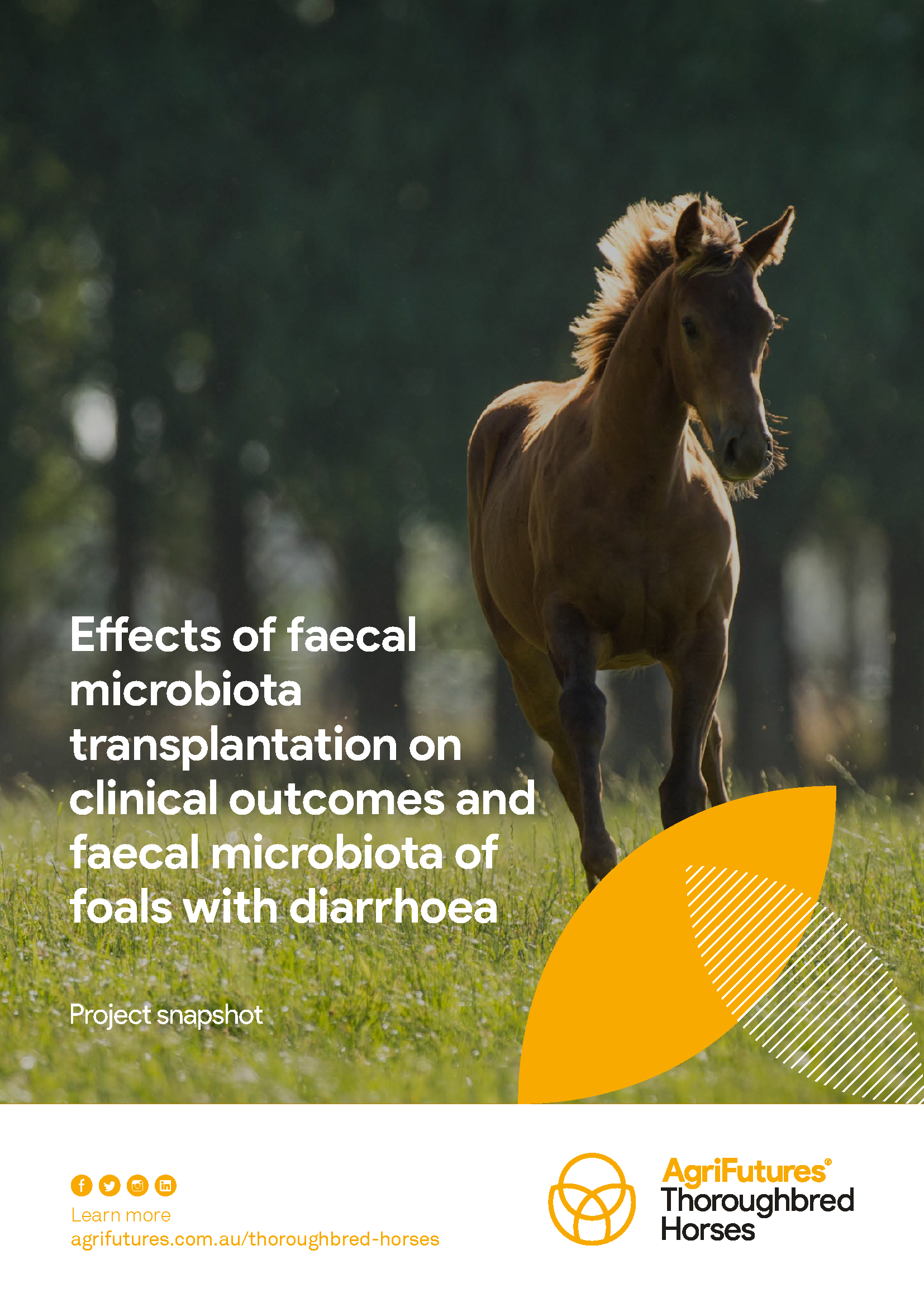Diarrhoea is common in foals and can lead to illness and death. Despite up to 80% of foals developing diarrhoea within the first six months of their lives, proven and effective treatment options are limited and rarely consider disturbances to bacterial populations in the intestines. Treatment of affected foals most commonly involves supportive care, including administration of fluids, anti-inflammatory drugs, nutrition and antimicrobial drugs. With antimicrobial resistance on the rise, new treatment methods are needed to provide options for stud farms to treat disease.
This project investigated the use of a manure preparation (faecal microbiota transplantation; FMT) to treat foals with diarrhoea. Diarrhoea was associated with at least one infectious agent in most foals included in the study, a factor that needs to be considered during management to ensure the safety of other foals and staff involved in caring for affected animals. Use of FMT to affected foals was found to be safe and resulted in some clinical and laboratory improvement, and alteration to the faecal microbiota compared with foals given an electrolyte solution as a placebo.
Using FMT to treat foals with diarrhoea may help resolve diarrhoea and improve the health of affected animals.





